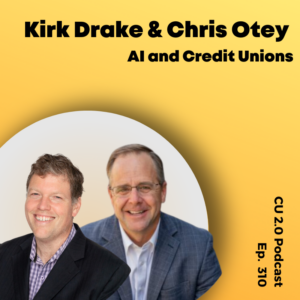By Robert McGarvey
For Credit Union 2.0
There was a time when traditional financial institutions owned the home mortgage business. No more. The changes are massive and stark and the bottomline is that non-banks are eating up this business. Their share is now 45% of home mortgages, according to the Federal Reserve.
Just about all experts expect it to climb above 50% pronto.
In 2011, just three big banks – Chase, B of A, and Wells Fargo – lent a staggering 50% of mortgage money. By 2016 their share had dropped to 21 percent, according to calculations by the Washington Post.
By 2016, six of the top mortgage lenders were non banks, with Quicken Loans leading that pack with 4.9% of the mortgage market, more than Bank of America with 4.07%.
Also among the nation’s top 2016 mortgage lenders were PHH Mortgage, loanDepot, and Freedom Mortgage.
Credit unions so far are holding their own. In 2015, they lent 8% of US mortgages, up from about half that in 2010.
Before applauding, though, recognize that credit unions face big challenges when it comes to just maintaining the current market share as mortgages become more digital and much, much faster. More on this below.
So, why have non banks grabbed so much market share, so quickly? Mainly because money center banks have largely pulled out of the mortgage market and it’s the non-banks that have nimbly moved to fill the void.
Many money center banks pulled out for two reasons. They were blindsided by the tidal wave of defaults on home mortgages in Great Recession. Maybe five million homes were foreclosed on. Big banks lost a lot of money – and a lot of positive reputation – in the meltdown. Many bankers accordingly resolved to get out of issuing home mortgages.
Enter the Consumer Financial Protection Bureau which sent more big banks running away. In their minds, the CFPB was anti bank, hostile, capricious and just bad news for mortgage lenders – so why make home loans?
That set the stage for the rise of non banks which plainly saw there are many, many consumers who have gained more confidence shopping online, they also became more comfortable applying for credit cards, car loans, and, eventually, yes, home mortgages online.
Non banks also have higher tolerance for consumers with less than perfect credit than do big banks and many credit unions. Most non banks also have found ways to live with, or avoid, the CFPB. And – crucially – they are pioneering and perfecting home mortgage processes that are essentially totally digital.
That means much lower loan origination costs.
It also means much, much faster processing, Quicken, for instance, has a “Rocket Mortgage” — where approval can be had in minutes. Not weeks. Not days. Minutes.
How many credit unions can match that – and know that this kind of speed is becoming crucial to holding onto a chunk of the mortgage market.
BMW and Mercedes can finance and roll a new car with $50,000 in paper in a matter of minutes and that car loses 20% of its value in the first year.
A house, in most markets, is very unlikely to depreciate.
Can credit unions match what the car companies and non banks can do in terms of speed?
A survey of banks and credit unions by Fairfax VA consulting firm CC Pace offered worrisome news. Some 80% of respondents said they were not even halfway there to being able to offer a fully digital mortgage experience. Said CC Pace: “Everyone recognized that this is where the future lies, but many owned up to the fact that they have barely begun the process.”
Keith Kemph, a CC Pace consultant, noted that credit unions have particular – and particularly troubling – challenges and may in fact now be falling behind even community banks in the battle to stay relevant against non banks. Kemph said credit unions “have not been as agile in the marketplace,” especially as the marketplace changes.
And he said “they are still plagued with technology challenges that limit their ability to grow without increasing their overall operating costs.”
Bottomline: there are big opportunities in the home mortgage market especially for credit unions. But credit unions may also lose this market unless they adapt to the changes that are transforming it – especially the push into digital mortgages.



